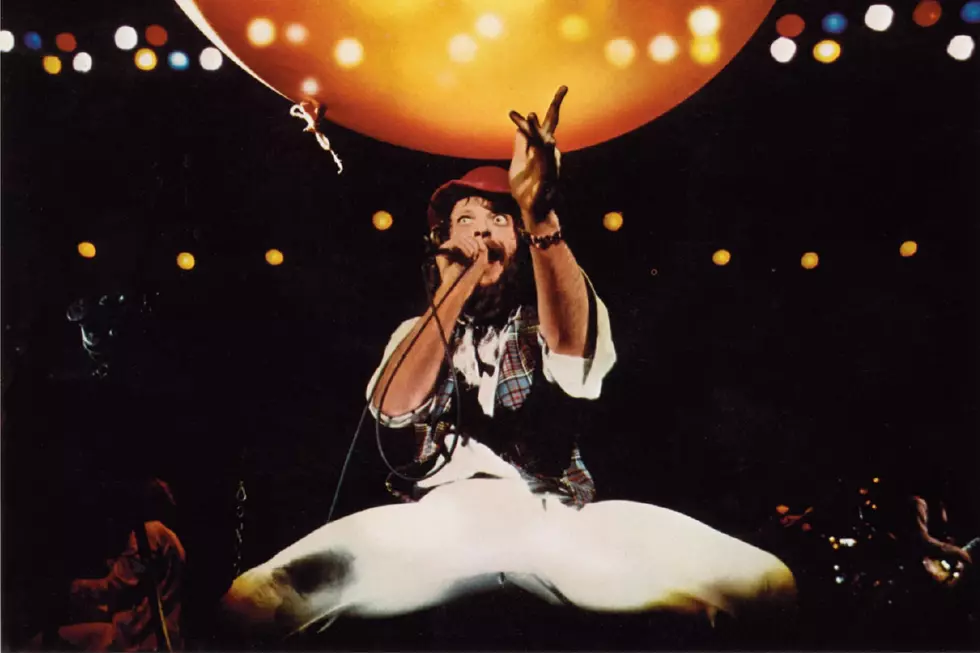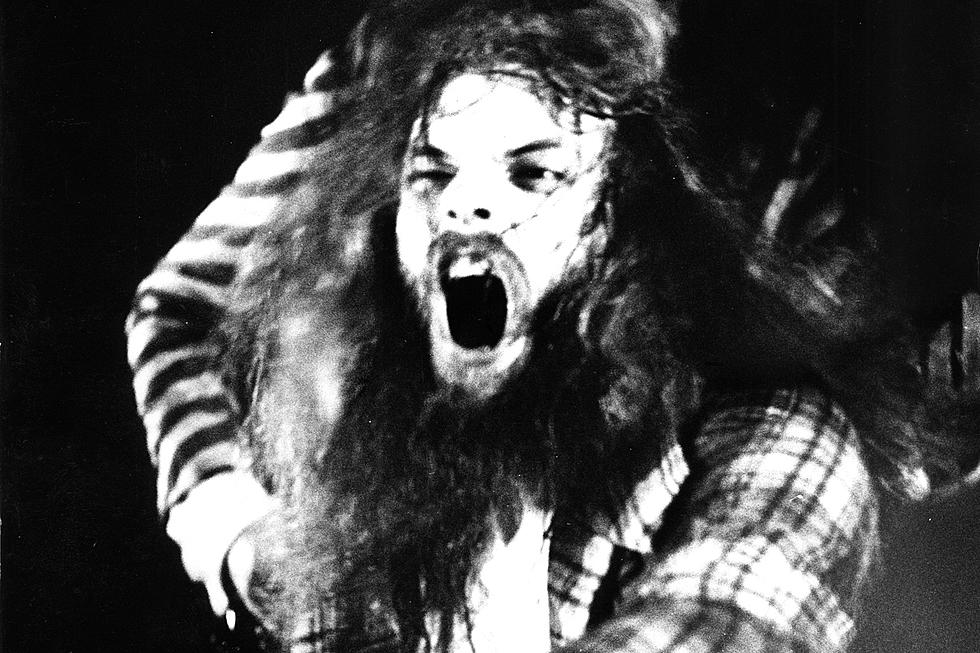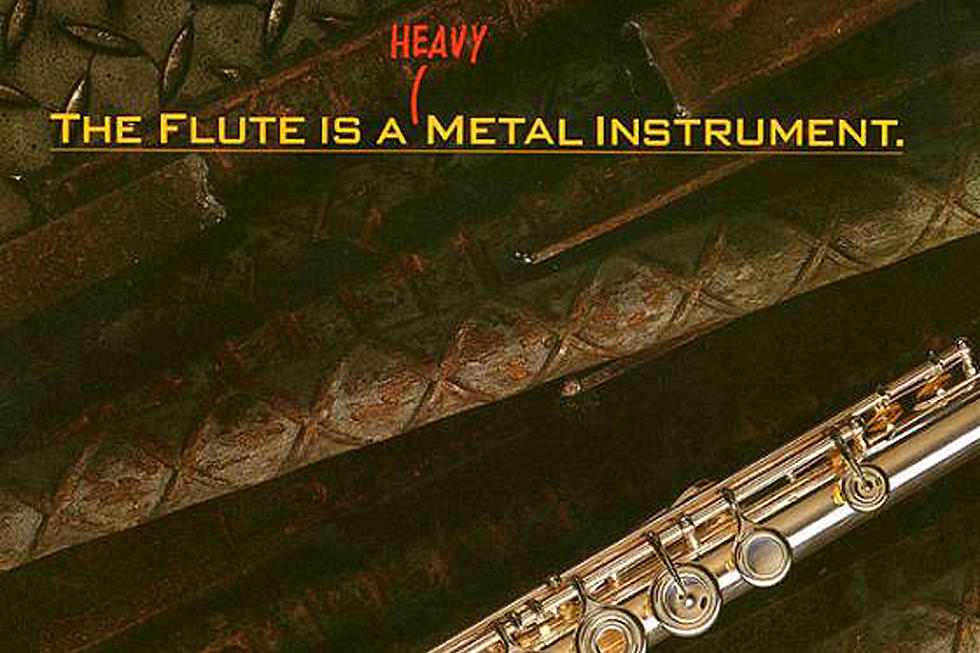
When Jethro Tull Entered the ’80s With the Synth-Heavy ‘A’
Jethro Tull were teetering toward implosion in 1979.
Bassist John Glascock died from heart failure during the recording of that year's Stormwatch, which led to the departure of longtime drummer Barrie Barlow. Meanwhile, keyboardist John Evan and orchestral arranger David Palmer fled the line-up through debatable circumstances, with frontman Ian Anderson intent on deviating from the band's bread-and-butter hybrid of folk and prog.
Anderson, Tull's mastermind since its inception, decided to record a solo album – but when Chrysalis Records learned of the plan, they persuaded him to re-brand the project under the band moniker. Released on Aug. 29, 1980, the result, simply titled A, offered a bold – and healthy – departure from a signature style that was threatening to become formula.
Anderson reinvigorated his arrangements, emphasizing the intricate synthesizers and electric violin of prog veteran Eddie Jobson (Roxy Music, Frank Zappa) – a modern approach that pushed Tull into the glossy '80s without embarrassment.
Even though it was conceived as such, A's reputation as a mutated "solo album" is unmerited: Like all Jethro Tull albums before it, this one couldn't have existed without help from Anderson's expert players. Returning guitarist Martin Barre and bassist Dave Pegg (who'd filled in for the late Glascock on the Stormwatch tour) offered the frontman familiar energy, but Jobson (despite being billed as a "special guest") defines the material with his layered keys.
"I was recording with drummer Mark Craney ... and I asked Ian, 'Shall I bring my drummer over?'" Jobson later told Vintage Rock. "So we laid everything down and it had a different sound and when Chrysalis heard it, they said, 'This is the direction we'd like for Jethro Tull, more modern, etc.' So it was put out as a Jethro Tull album."
Some fans dismiss A because it deviates from Jethro Tull's trademarks: Heavy flute, acoustic guitars that balance of English folk with classical influences, and electric blues. But Jobson gave the album – and band – a vital new energy.
Watch Jethro Tull Perform 'Crossfire'
The multi-instrumentalist is credited with "additional musical material," evident in the spacey synth intro to the art-rock epic "Black Sunday," the AOR sparkle of side two opener "Protect and Survive" and the spooky electric violin surge of "Uniform." The most apparent link to Tull's past is the Celtic folk instrumental "The Pine Marten's Jig," led by Anderson's jazzy flute and Pegg's mandolin. (Then again, it also features a psychedelic Barre guitar freak-out and barking bass riffs.)
This line-up continued for a world tour, flaunting their new image by wearing white jumpsuits on-stage. Jobson recalled the jaunt fondly.
"I got to tell you, that was the most fun I've ever had on tour," he told Vintage Rock. "There was no pressure on me as such, and Ian gave me the spotlight. He was comfortable leaving the stage for five minutes during my solo spot. It was a terrific group of guys — an amazing band and everybody treated me so well. Every night we went out and played huge arenas."
But this radical new Jethro Tull didn't – and maybe couldn't – last. Jobson's last official show came the following February in France, marking the end of this inventive one-shot. The band's next album, 1982's The Broadsword and the Beast, found Anderson, Barre and Pegg revamping the line-up once more – blending electronic sheen with the folk elements of the past.
"The biggest single change is the dreadful influence that economics has to bear on the ultimate shape and form of the music that you hear," Anderson said in a 1980 TV interview. "Ten years ago, there was a great deal more flexibility and freedom based on radio programming and in terms of record company policy as to what they'd take a chance on – because the profit margins were higher, simple as that.
"There wasn't quite the same desperate competition that existed between artists [and] record companies for a limited number of dollars that were available to be spent on gross product," he added. "Whereas now, there's less money in people's pockets, and a record is more of a luxury item."
Most of Jethro Tull's '80s output sounds dated today, suggesting a band intent on recapturing a past spark. That's what makes A a bittersweet listen: If Jobson had stuck around, that evolution could have yielded plenty of surprises.
Jethro Tull Albums Ranked
More From Ultimate Classic Rock









